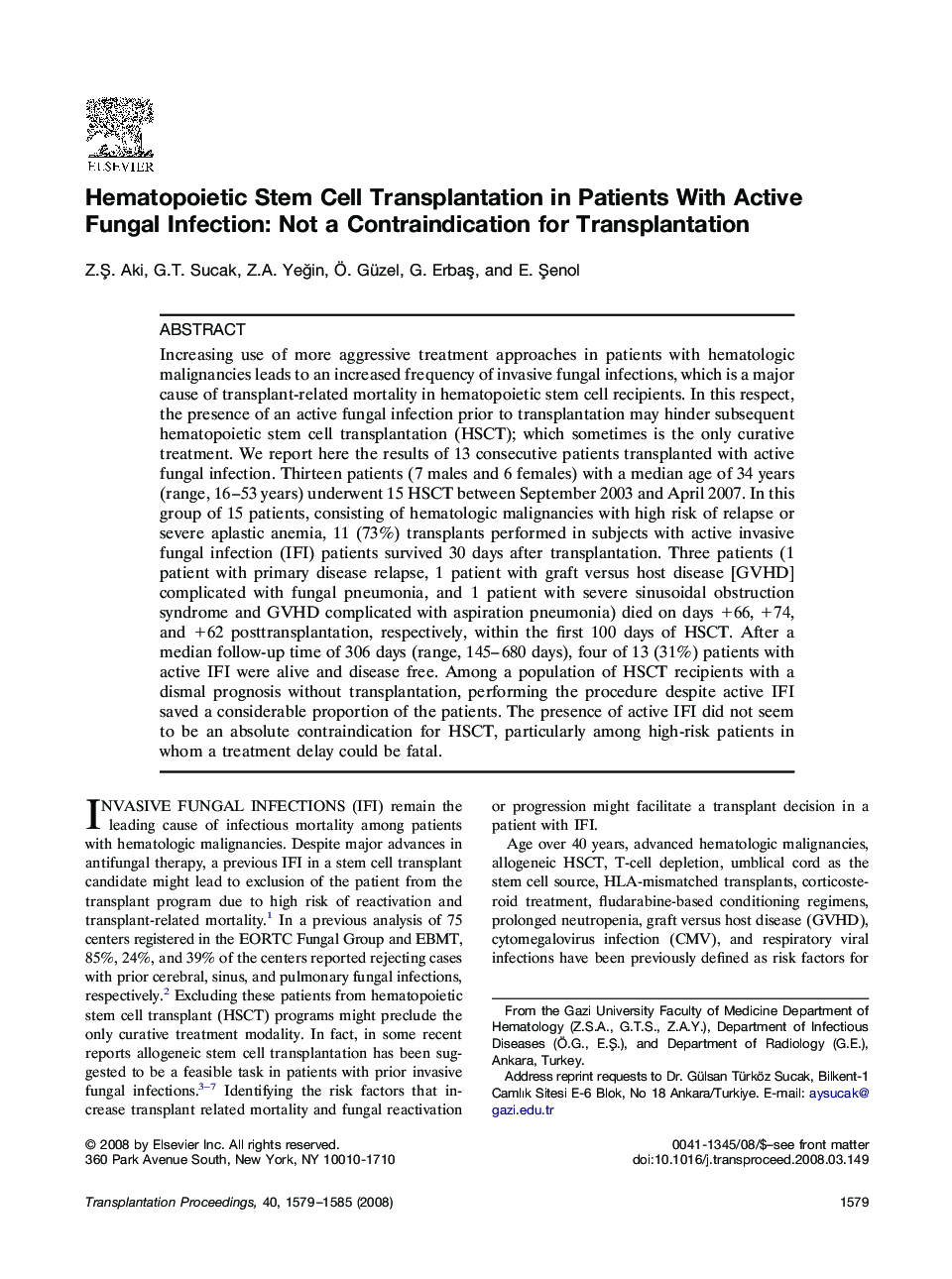| Article ID | Journal | Published Year | Pages | File Type |
|---|---|---|---|---|
| 4258266 | Transplantation Proceedings | 2008 | 7 Pages |
Increasing use of more aggressive treatment approaches in patients with hematologic malignancies leads to an increased frequency of invasive fungal infections, which is a major cause of transplant-related mortality in hematopoietic stem cell recipients. In this respect, the presence of an active fungal infection prior to transplantation may hinder subsequent hematopoietic stem cell transplantation (HSCT); which sometimes is the only curative treatment. We report here the results of 13 consecutive patients transplanted with active fungal infection. Thirteen patients (7 males and 6 females) with a median age of 34 years (range, 16–53 years) underwent 15 HSCT between September 2003 and April 2007. In this group of 15 patients, consisting of hematologic malignancies with high risk of relapse or severe aplastic anemia, 11 (73%) transplants performed in subjects with active invasive fungal infection (IFI) patients survived 30 days after transplantation. Three patients (1 patient with primary disease relapse, 1 patient with graft versus host disease [GVHD] complicated with fungal pneumonia, and 1 patient with severe sinusoidal obstruction syndrome and GVHD complicated with aspiration pneumonia) died on days +66, +74, and +62 posttransplantation, respectively, within the first 100 days of HSCT. After a median follow-up time of 306 days (range, 145–680 days), four of 13 (31%) patients with active IFI were alive and disease free. Among a population of HSCT recipients with a dismal prognosis without transplantation, performing the procedure despite active IFI saved a considerable proportion of the patients. The presence of active IFI did not seem to be an absolute contraindication for HSCT, particularly among high-risk patients in whom a treatment delay could be fatal.
